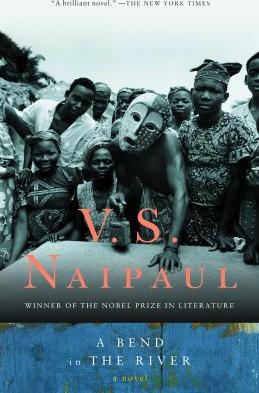
A bend in the river
First published in 1979, a Bend in the River is a novel of the politics and society of postcolonial Africa. Salim, a young Indian man, moves to a town on a bend in the river of a recently independent nation. As Salim strives to establish his business, he comes to be closely involved with the fluid and dangerous politics of the newly created state, the remnants of the old regime clashing inevitably with the new.
Available Copies by Location
| Location | |
|---|---|
| Community Centre | Available |
Browse Related Items
| Subject |
| East Indians > Africa > Fiction. |
| Genre |
| Fiction. |
- ISBN: 9780676975130
- Physical Description 278 pages ; 21 cm
- Publisher [Place of publication not identified] : [publisher not identified], 1989.
- Copyright ©1979.
Content descriptions
| Formatted Contents Note: | The Second Rebellion -- The New Domain -- The Big Man -- Battle. |
Additional Information

Kirkus Review
A Bend in the River
Kirkus Reviews
Copyright (c) Kirkus Reviews, used with permission.
Africa. Some time in the recent past, before so much of the continent became ""closed down or. . . full of blood."" Somewhere in the interior, a rebellion-flattened town in a country that, ""like others in Africa, had had its troubles after independence."" To this ghost town at the bend in the great river comes the narrator, Salim, an Indian from East Africa who has bought the town's makeshift general store from a fellow Indian; and history-watcher Naipaul uses Salim's stay as the springboard for a meditation on the uncertain progress of post-colonial black Africa. It turns out that Salim has timed his purchase well: he's there at the start of a post-rebellion boom, as the new ""Big Man"" president in the capital plans big, modern things for the country. Salim's entrepreneur friend, an elderly Indian, acquires the Bigburger franchise for the town. A wasteland a few miles away is transformed into ""the Domain""--a university city/research center that attracts European advisers, including an Africa expert (""the Big Man's white man"") whose French wife has an unlovely, uninteresting affair with Salim. And Salim begins to feel part of the country, inspired by the Big Man even while seeing that it's all a hoax: ""to understand the President's purpose was to be affected by it."" But massive disillusion will set in, of course, as the Big Man fails to follow through and bloodthirsty youth squads spring up in the bush. All foreigners are endangered by a new ""radicalization"" policy: Salim loses his store and saves his skin only because of his friendship with a young black--son of one of Salim's market-woman customers--who is now a faceless, uniformed official after having gone through all the roles of a ""new man of Africa."" Naipaul's gloomy vision of post-colonial Africa is sure to attract interest, especially since it creepily coincides with his brother Shiva's far less compassionate African journey, North of South (p. 371). But, though the Naipaul prose here is as gracefully moody as ever, the interplay between think-book and novel-of-character doesn't work at all: Salim remains an uninvolving personality throughout, and the cross-cultural themes are carved out much too thickly--often in long chunks of dialogue. This should have been an essay, perhaps, and one or two short stories; as a novel, it's listless--as a framework for ideas, it's never less than provocative. Copyright ©Kirkus Reviews, used with permission.


